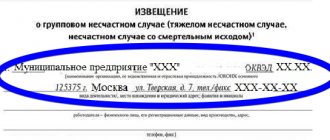Labor disputes of an individual nature are regulated in Art. 381 Labor Code of the Russian Federation. In accordance with this regulatory act, an individual labor dispute is a disagreement on any issues between an employee and an employer due to different understandings of the application of labor legislation.
If a conflict situation arises at work, contact professional lawyers and attorneys. To receive an initial consultation, call the indicated phone numbers or write to us in the specially provided window.
The concept of an individual labor dispute
An individual labor dispute is a conflict situation with an employer company or individual entrepreneur on the one hand and with an employee who is, was previously, or plans to be in an employment relationship with him. For example, a dispute could arise due to the employer’s refusal to conclude an employment contract if the prospective employee considered such a response to be unreasonable and contrary to the norms of the Labor Code of the Russian Federation.
An individual labor dispute may involve issues of application:
- federal legislation and individual regulations;
- collective agreement;
- local regulations;
- individual working conditions in the contract.
- The reason for the conflict may be:
- making any adjustments to the employment contract;
- transfer of an employee to another job;
- refusal to grant days off or vacation;
- application of disciplinary action;
- payment of wages is not timely or in full;
- dismissal, etc.
Whatever the reason for the controversial situation, we recommend contacting competent lawyers. A specialist will be able to assess the situation from a professional point of view and offer the most optimal and promising solution from the point of view of current legislation.
Bodies for consideration of individual and collective labor disputes
Some people believe that individual labor disputes are considered by the labor inspectorate. However, this department does not deal with such issues.
Resolution of the Supreme Court of the Russian Federation No. 19-KG 12-5 established that the Labor Inspectorate conducts inspections based on statements from employees of a particular company. However, this is not a review of the case. However, materials obtained during inspections may be included in court documents.
It is important to take into account that the Labor Inspectorate will conduct an unscheduled inspection only if a violation of the law on the part of the employer is obvious.
The bodies for considering individual labor disputes are specialized commissions or courts. This is provided for in Art. 381-397 Labor Code of the Russian Federation. It is necessary to apply to the court of general jurisdiction at the location of the defendant.
Commentary on Article 383 of the Labor Code of the Russian Federation
The commented article determines that the procedure for considering individual labor disputes is regulated by the Labor Code and other federal laws.
For the procedure for considering individual labor disputes in the CCC, see Art. Art. 385 - 390 Labor Code, in court - Art. Art. 391 - 394 TK.
In addition, the procedure for considering cases of labor disputes in courts is determined by civil procedural legislation. This is due to the fact that labor law does not have its own labor procedural code, therefore legal proceedings are conducted according to the general rules enshrined in the Civil Procedure Code, but taking into account some features established specifically for labor disputes.
For some categories of workers, the specifics of consideration of individual labor disputes may be established by federal laws. For example, a number of features are established by the Law of the Russian Federation dated June 26, 1992 N 3132-1 “On the status of judges in the Russian Federation” (as amended on December 8, 2011) <1>, Federal Law dated July 27, 2004 N 79-FZ “On state civil service of the Russian Federation" (as amended on November 21, 2011), etc.
——————————— <1> VSND and the Armed Forces of the Russian Federation. 1992. N 30. Art. 1792; 1993. N 17. Art. 606; SAPP RF. 1993. N 52; NW RF. 1995. N 26. Art. 2399; 1999. N 29. Art. 3690; 2000. N 26. Art. 2736; 2001. N 51. Art. 4834; 2004. N 35. Art. 3607; 2005. N 15. Art. 1278; 2007. N 10. Art. 1151; N 31. Art. 4011; 2008. N 52 (part 1). Art. 6229; 2009. N 19. Art. 2273; N 23. Art. 2755; N 26. Art. 3124; N 29. Art. 3594; N 39. Art. 4533; N 45. Art. 5264, Art. 5266; N 48. Art. 5746; 2010. N 14. Art. 1557; N 27. Art. 3419; N 50. Art. 6596; N 52 (part 1). Art. 6986; 2011. N 1. Art. 16; RG. 2011. Dec 9; 10 Dec
When considering a labor dispute, judges are guided not only by labor legislation and the Code of Civil Procedure, but also necessarily use the explanations of the norms given in the decisions of the Plenum of the Supreme Court of the Russian Federation.
Among them are Resolutions of the Plenum of the Armed Forces of the Russian Federation dated March 17, 2004 N 2 “On the application by the courts of the Russian Federation of the Labor Code of the Russian Federation”, dated November 20, 2003 N 17 “On some issues that arose in judicial practice when considering cases of labor disputes involving joint stock companies, other business partnerships and societies” and a number of others.
Procedure, stages and methods of resolution and consideration
All aspects of labor dispute resolution are regulated at the legislative level. Let us consider in more detail what the procedure for resolving individual labor disputes includes.
If disagreements arise, you must first try to resolve the issue without involving any authorities. An employee can resolve a conflict independently or with the participation of a representative. If it is not possible to resolve the dispute peacefully, you must contact the labor dispute commission.
Resolving an individual dispute in a commission
The process of creating a specialized commission is regulated by Art. 384 Labor Code of the Russian Federation. If the organization does not have such a commission, it is created within 10 days. The initiator can be either an employee or management.
The decision to create is made at a general meeting of the team. During the meeting, delegates from the team are also confirmed. In turn, management also appoints representatives of its side.
If there is a disagreement with the actions of management, the employee has three months to submit an application to the established commission. It is necessary to submit the appropriate paper, which sets out the essence of the disagreements that have arisen, and also provides arguments. The fact of application is subject to mandatory registration.
The application deadline may be missed. In such a situation, the commission evaluates how valid the reasons for the absence were. If the grounds are found to be valid, the period for filing an application is extended.
The commission considers the application within 10 days from the date of registration of the application. In order to draw certain conclusions about the case, one or more meetings of the authorized body must take place. A meeting is considered valid if it is attended by at least 50% of the number of members representing each party.
The presence of the applicant is, of course, desirable. However, this is his right, not his obligation. In addition, you can invite any people who are able to explain the current situation. For example, witnesses, experts and other specialists.
Decision on an individual dispute
Members of the commission listen to all arguments, study the issue from different angles and draw conclusions. They can provide additional recommendations on how to resolve a controversial situation. The final decision is made by secret ballot. The absolute majority decides.
The decision made is formalized in writing. The document has two parts: explanatory and effective. The text must include the following:
- name and details of the company in which the dispute is being considered;
- the name of the structural unit where the conflict occurred;
- Full name of the employee's supervisor;
- list of persons who took part in the commission meeting (their names and positions);
- dates of application submission and commission meeting;
- the essence of the conflict;
- the outcome of the conflict consideration;
- legislative justification;
- results of vote counting after secret ballot.
The document must be certified by the company’s seal or the labor dispute commission’s own stamp, if there is one.
The formalized decision is sent to both parties to the conflict. The transfer of the document must occur within three days after approval. The decision taken is appealed in court. 10 days are given for this.
Execution of a decision on an individual dispute
After the expiration of the period for possible challenging the commission’s decision in court, if this does not happen, it is necessary to fulfill the requirements of the document. Three days are allotted for these actions.
If the commission's orders are not followed, the interested person is issued a writ of execution. You will need to contact the bailiff service with this document. In the future, instructions will be compulsorily followed.
If you have questions or any difficulties, it is recommended to consult a lawyer or labor lawyer. To do this, contact us using any of the methods offered on the site.
Time limits for consideration of labor disputes
The time limit for an employee to go to court to resolve labor disputes is limited by the provisions of Art. 392 Labor Code of the Russian Federation. In accordance with this regulatory act:
- an employee has the right to apply for consideration of an individual labor dispute within three months from the moment when he learned or should have learned about a violation of his rights;
- if the conflict concerns dismissal, the judicial authorities can be contacted within one month from the date of issuance of a copy of the dismissal order or from the date of issuance of the work book;
- the employer has the right to apply to the courts for disputes regarding compensation for damage caused within a year from the date of discovery of such damage.
In cases where these deadlines are missed for valid reasons, they can be restored by the court. It is important to take into account that ignorance of the periods for applying to the judicial authorities is not a basis for reinstatement.
Peculiarities of consideration of labor disputes in court
Procedural features of the consideration of labor disputes in court include:
- features of going to court (jurisdiction and jurisdiction);
- features of consideration of labor cases by courts of general jurisdiction;
- features of execution of court decisions;
- deadlines established for going to court;
- in labor cases, the plaintiff will always be the employee, and the defendant will be the employer (with the exception of the only case when the employer goes to court with a claim for compensation for material damage caused by the employee);
- participation of trade unions in protecting the labor rights of workers;
- When an employee goes to court, he is exempt from court costs (Article 393 of the Labor Code of the Russian Federation; as a general rule, the employer is not exempt from paying court costs).
- a category of workers appears who have the right to personally perform labor duties (14-15 years old), but do not have procedural capacity.
It should be noted that the Labor Code of the Russian Federation does not determine the jurisdiction of labor cases (Article 382 of the Labor Code of the Russian Federation - individual labor disputes are considered by labor dispute commissions and courts).
All individual labor disputes fall under the jurisdiction of courts of general jurisdiction (federal courts and magistrates) by virtue of Art. 22 of the Code of Civil Procedure of the Russian Federation, which determines the competence of courts of general jurisdiction (Article 383 of the Labor Code of the Russian Federation also refers there, providing that the procedure for considering cases of labor disputes in the courts is determined, in addition to the Labor Code of the Russian Federation and other legislative acts in the field of labor, also by civil procedural legislation.
By virtue of Art. 23 of the Code of Civil Procedure of the Russian Federation, the magistrate has jurisdiction over cases of issuing a court order. Thus, all other cases of labor disputes (except for cases declaring a strike illegal) are subject to consideration by the district court. The exception is cases provided for in Art. 25-27 Code of Civil Procedure of the Russian Federation (military and supreme courts).
According to clause 1, part 1, art. 26 of the Code of Civil Procedure of the Russian Federation, civil cases related to state secrets are subject to the jurisdiction of the supreme court of the republic, the regional, regional court, the court of a federal city, the court of an autonomous region and the court of an autonomous district. The issue of state secrets may be the subject of consideration by the court when resolving disputes related to: termination of an employment contract at the initiative of the employer in the event of:
- disclosure of state secrets protected by law that became known to the employee in connection with the performance of his job duties (subparagraph “c”, paragraph 6, part 1, article 81 of the Labor Code of the Russian Federation);
- termination of an employment contract at the initiative of the employer in the event of termination of the employee’s access to state secrets, if the work performed requires access to state secrets (clause 10, part 1, article 83 of the Labor Code) and in other cases.
Consequently, cases arising from labor or service relations related to state secrets fall under the jurisdiction of the supreme court of the republic, the regional court, the court of the federal city, the court of the autonomous region and the court of the autonomous district.
A civil dispute arising over the collection of unpaid amounts depends on the size of the disputed amount, while a labor dispute does not depend on the value of the claim. Moreover, if there is no disagreement between the employee and the employer regarding the amount of debt, for example, regarding wages, then such a case is in accordance with clause 1, part 1, art. 23 of the Code of Civil Procedure of the Russian Federation is subject to consideration by a magistrate by filing an application for the issuance of a court order. If there is a disagreement, the dispute must be resolved through a lawsuit.
Deadlines for filing claims:
- for disputes about dismissal - 1 month from the date of delivery of a copy of the dismissal order or from the date of issue of the work book;
- for other labor disputes - 3 months from the day the employee learned or should have learned of a violation of his right;
- in disputes regarding the recovery from an employee of material damage caused to the employer - within 1 year from the date of discovery of the damage caused;
- on issues of appealing decisions of the labor dispute commission, an employee or employer may go to court within ten days from the date of delivery of copies of the commission’s decision.
Trade unions, in accordance with the Federal Law of January 12, 1996 No. 10-FZ “On trade unions, their rights and guarantees of activity,” have one of their main goals to protect the social and labor rights of their members. In contrast to the participation of the prosecutor in civil proceedings, who can apply to the court with a statement in defense of the rights, freedoms and legitimate interests of citizens in any cases, but only if the citizen, for reasons of health, age, incapacity and other valid reasons, cannot go to court, the trade union goes to court only in cases arising from labor relations, both at the request of its members and other workers, and on its own initiative, since the purpose of such a public association is to protect labor rights, including in court .
By virtue of Art. 393 of the Labor Code of the Russian Federation, when filing a claim in court on claims arising from labor relations, only employees are exempt from paying fees and court costs. This rule applies to claims filed by employees regarding non-fulfillment or improper fulfillment of the terms of an employment contract that are of a civil nature. Taking this into account, the employer, when filing a claim for compensation for damage caused by an employee, is obliged to pay a state fee in the amount provided for in subsection. 1 clause 1 art. 333.19 Tax Code of the Russian Federation.
Minors under the age of fourteen, according to Part 5 of Article 37 of the Code of Civil Procedure of the Russian Federation, do not have the right to independently defend their rights in court. Their rights, freedoms and legitimate interests are protected in the process by their legal representatives - parents, adoptive parents, guardians, trustees and other persons to whom this right is granted by federal law. This category of minors is not given the right to sign an employment contract on their own, even with the consent of their legal representatives; On their behalf, the employment contract is signed by parents or guardians.
It should be noted that when terminating an employment contract with minor workers at the initiative of the employer, the Labor Code of the Russian Federation provides an additional guarantee for the protection of the rights of minor workers - in an administrative manner. In accordance with Art. 269 of the Labor Code of the Russian Federation, termination of an employment contract with employees under the age of eighteen at the initiative of the employer (except in the case of liquidation of an organization or termination of activities by an individual entrepreneur), in addition to compliance with the general procedure, is allowed only with the consent of the relevant state labor inspectorate and the commission for minors’ affairs and the protection of their rights . Thus, here we are talking about preventing violations of the labor rights of minor workers.
0
Going to court for individual labor disputes
Resolution of individual labor disputes in the courts occurs at the initiative of the employee, employer or trade union acting in the interests of the employee.
You must go to court if:
- the parties to the conflict do not agree with the decision of the labor dispute commission;
- the employee goes to court without first contacting the commission;
- the application is submitted by the prosecutor in cases where the commission’s decision differs from the legal requirements on this issue.
- An employee applies to the judicial authorities when the following conflict situations arise:
- the company refuses to reinstate him, regardless of the grounds on which the employment relationship was terminated;
- adjusting the date and wording of the grounds for dismissal;
- transfer to another job;
- transfer of payment for forced absence or payment of the difference in wages for the period of execution of tasks for which the payment is lower;
- unlawful actions or inactions of the employer regarding the processing and protection of the employee’s personal data.
The employer may apply to the courts for compensation for damage caused. In practice, this is the main and, one might say, the only reason for filing a claim on the part of the employer.
In addition to the reasons listed, the parties may apply to the judicial authorities for consideration of an individual labor dispute in the event of a refusal to accept a place of employment:
- persons working under an employment contract with employers who are individuals or employees of religious organizations;
- persons who believe that they are being discriminated against (this is prohibited by Article 3 of the Labor Code of the Russian Federation).
In accordance with labor legislation, discrimination in the world of work is prohibited, and all persons are provided with equal opportunities to exercise their rights.
As mentioned earlier, an employee has the opportunity to apply to a judicial body of general jurisdiction to resolve an individual labor dispute within three months from the date of violation of his rights. If the conflict concerns the issue of dismissal, then this period is reduced to one month. The period is calculated from the moment of delivery of a copy of the dismissal order or the original work book.
A different deadline applies for employer requests. It is one year. We are talking about disputes that relate to compensation for damage caused. The period is counted from the moment this fact is discovered.
Commentary to Art. 383 Labor Code of the Russian Federation
Comments on articles of the Labor Code will help you understand the nuances of labor law.
§ 1. The procedure for considering individual labor disputes is the procedure for their consideration, i.e. consistent actions of jurisdictional bodies vested by the state with the authority to resolve labor disputes with the acceptance for consideration of a dispute within the jurisdiction of this body, preparing it for consideration, actions during the consideration process, making a decision on the dispute and, if it is not carried out voluntarily, then taking actions to enforce it.
§ 2. Each jurisdictional body (CCC, court, higher body for disputes with alternative jurisdiction - see the commentary on Article 385 of the Labor Code) is an independent body with its own procedure for considering labor disputes. Although the possibility of sequential consideration of a dispute, first in the CCC, then in court, is called the general procedure, each of these two bodies has its own procedure, regulated differently by law.
The procedure for considering labor disputes in the CCC is regulated by the norms of Chapter 60 of the Labor Code (Articles 383 - 390).
The procedure for considering labor disputes in court is regulated by Art. 390 - 397 Chapter 60 of the Labor Code and other federal laws, as well as civil procedural legislation. Other federal laws mean laws that establish alternative jurisdiction for certain labor disputes, when an employee is given the right to appeal to a higher authority or court, or after appealing to a higher authority, and not having received a satisfactory decision, to file a claim in court. Such a dispute is not within the jurisdiction of the CCC.
§ 3. Part 2 Art. 383 of the Labor Code provides that the specifics of consideration of labor disputes of certain categories of workers are established by federal laws.
Thus, the specifics of the procedure for resolving individual service (and in fact, labor) disputes are established by the Federal Law of July 27, 2004 N 79-FZ “On the State Civil Service of the Russian Federation” (SZ RF. 2004. N 31. Art. 3215).
The initial basis for it was Chapter 60 of the Labor Code. This Law formulates the concept of an individual service dispute (which is based on the concept of an individual labor dispute given in Article 381 of the Labor Code), determines the bodies that are given the right to consider such disputes, the procedure for filing, considering, making decisions on disputes and executing decisions made commissions created specifically for this purpose.
This Law recognizes the bodies authorized to consider individual service disputes as the commission of the state body for service disputes and the court (see Chapter 16). Thus, consideration of labor (service) disputes of state civil servants by higher authorities has been cancelled.
The Law of the Russian Federation of June 26, 1992 “On the status of judges in the Russian Federation” (Vedomosti RF. 1992. N 30. Art. 1792) established the specifics of the procedure for considering labor disputes for judges of the Russian Federation. For prosecutorial employees, these features (from the point of view of the jurisdiction of their labor disputes) are established by the Law of the Russian Federation “On the Prosecutor's Office of the Russian Federation” (SZ RF. 1995. N 47. Art. 4472).
§ 4. In accordance with Art. 6 of the Labor Code, the procedure for resolving individual labor disputes (as well as collective ones) is the subject of jurisdiction of federal government bodies in the field of labor relations and other relations directly related to them.
Article 383 of the Labor Code specifies that the procedure for considering individual labor disputes is regulated by this Code and other federal laws, and the procedure for considering cases of labor disputes in the courts is determined, in addition, by the civil procedural legislation of the Russian Federation. The specifics of consideration of individual labor disputes of certain categories of workers are also established only by federal laws.
Claim for an individual labor dispute
The claim is drawn up strictly according to the rules provided for in Art. 131 Code of Civil Procedure of the Russian Federation. If the established requirements are violated, consideration of the case will be refused or the claim will be returned to the applicant.
| Services of lawyers and advocates | Price |
| Initial free consultation (up to 30 minutes) | FOR FREE |
| Consultation in writing | from 2000 rub |
| Drawing up an application for a court order | from 1000 rub |
| Drawing up the necessary documents: claims, complaints, requests | from 3000 rub |
| Representation in court | from 5000 rub |
| Turnkey legal protection: from claim to victory | from 15,000 rub. |
| Appeal, defense in a higher authority | from 3000 rub |
| Assistance in the execution of a court decision | from 3000 rub |





